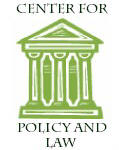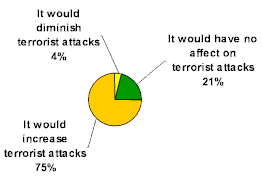|
New IRmep book now available!

on Twitter!
Audio




|
Israel's Proposed Annexation of Ma'ale Adummim:
Rejecting a Partnership for Pandemonium
PDF/Printable
The Plea to
Legitimize Annexation
April 11, 2005 witnesses another meeting between Israeli Prime Minister Ariel Sharon and
President George W. Bush. Like their previous meeting in April of 2004, topics on the
agenda will include inevitable requests for financial assistance along with a large debit
on America's global reputation. The Israeli Prime Minister will seek US assurances for
Israeli construction of 3,500 housing units on a strip connecting Jerusalem to Ma'aleh
Adumim, the most populous Jewish settlement in the West Bank.
The construction is highly controversial because the "road
map" calls for a freeze in all colonization activity. The project is not only the
largest in a decade, but cuts into land that Palestinians see as territory needed for a
viable, contiguous Palestinian state and access to an East Jerusalem capital. The Israeli
Prime Minister is seeking US support for annexations that would inflame the
Israeli-Palestinian conflict and create regional pandemonium (see Exhibit 1).
Exhibit 1: Proposed Israeli Annexation of Ma'ale Adummim
(Dotted Red Line)
(Source: Israeli Model for Control over the West Bank, IFFP – March 2005)

Divide and Conquer – Splitting the West Bank
Analysis of the Israeli proposal to seal control over Jerusalem by seizing a 160 square
kilometer "clover leaf" of surrounding territory reveals how this proposal dooms
any prospect for peace between Israelis and Palestinians living in sovereign states:
1. Annexed territory would divide the West Bank into two enclaves, the
southern Bethlehem territory and the northern Ramallah territory. Palestinians in transit
between regions would have to make lengthy detours around Jerusalem toward the Dead Sea.
2. The expansion represents a strategic deviation from the road map, in
which Israel only negotiates with the US for final status issues, rather than the
Palestinians in a negotiated political process.
3. As the Israeli separation wall follows the E-1 corridor to encompass
the Ma'ale Adummim settlements, the natural flow of people, goods and services between
neighboring goods is cut off, changing the prospect for contiguous community growth.
Most troubling for the Unites States is the prospect for continued complicity in thwarting
international law. In an April 14, 2004 the US opined in an official letter to Sharon that
Israel could expect to annex Palestinian territories. This perceived US
"permission" does not comply with UN resolutions and international law in spite
of citation:
"As part of a final peace settlement, Israel must have secure and recognized
borders, which should emerge from negotiations between the parties in accordance with UNSC
Resolutions 242 and 338. In light of new realities on the ground, including already
existing major Israeli populations centers, it is unrealistic to expect that the outcome
of final status negotiations will be a full and complete return to the armistice lines of
1949, and all previous efforts to negotiate a two-state solution have reached the same
conclusion. It is realistic to expect that any final status agreement will only be
achieved on the basis of mutually agreed changes that reflect these realities."
If the US accepts Ariel Sharon's invitation to unilaterally sanction major new
"realities on the ground"; many facilitated by aid and billions in tax exempt
contributions from groups operating in the United States, the consequences to US interests
in the region would be irreparably harmed. Arab allies and opinion leaders would see
compelling evidence that the US is committed only to "rule of law" within Arab
societies, and that international power politics and lobbies matter more when difficult
choices are presented to the executive branch.
Recommendations:
The natural US role in the Israeli-Palestinian conflict is that of a neutral party
striving for a just solution. As such, the US:
1. Must reject unilateral Israeli annexations of
territory that occur outside of a negotiated settlement between Israelis and Palestinians.
In a 2004 IRmep survey of US Middle East
academics, most believed that violating international law by approving annexations
would not only diminish the US's already damaged international credibility, but also
inflame terrorism (see Exhibit 2).
Exhibit 2: US Recognition of Israeli Annexations Fuels Terrorism
((Source: IRmep MEASURE Survey of US Middle East Academics 2004)
How would the formal US recognition of annexation of territory outside the 1967
borders likely affect terrorist attacks?

|

|
| In the United States |
In the Middle East |
2. Attorney General and FBI should also continue
to investigate and build cases for prosecution against unregistered foreign agents
operating illegal colonization funding networks in the United States. This includes groups
such as the World Zionist Organization found by former Israeli prosecutor Talia Sasson to
be major conduits for financing law breaking inside and outside Israel.
3. Should analyze and consider the implications of the Arab League peace
plan. This plan, which provides Arab diplomatic relations and recognition of Israel in
exchange for withdrawal to pre-1967 borders would provide an enduring border and
opportunity for peace that unilateral Israeli "facts on the ground" cannot.
|

 Sign
up for IRmep's periodic email bulletins!
Sign
up for IRmep's periodic email bulletins! Sign
up for IRmep's periodic email bulletins!
Sign
up for IRmep's periodic email bulletins!